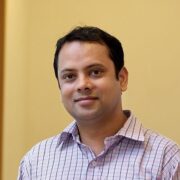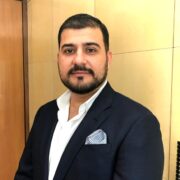
 International English Language Testing System (IELTS) is one of the most widely accepted test aimed at checking English proficiency of people who aspire for higher education or migration (work/emigration) to nearly all of English speaking countries. There are more than 1,100 test locations to choose from worldwide with more than 42 locations within India and 48 test dates per year.
International English Language Testing System (IELTS) is one of the most widely accepted test aimed at checking English proficiency of people who aspire for higher education or migration (work/emigration) to nearly all of English speaking countries. There are more than 1,100 test locations to choose from worldwide with more than 42 locations within India and 48 test dates per year.
There are two versions of the test –
Academic – for people applying for higher education or professional registration
General Training for those who wish to migrate to Australia, Canada and the UK, or apply for secondary education, training programmes and work experience in an English-speaking country.
The test covers all four language skills i.e. Listening (30 minutes), Reading (60 minutes), Writing (60 minutes) and Speaking (11–14 minutes). The total test time is 2 hours and 45 minutes.
Test Score
Test results are reported as band scores on a scale from 1 (the lowest) to 9 (the highest) and the score is valid for upto 2 years.
Overall Band Score
The Overall Band Score is the average of the four component scores, rounded to the nearest whole or half band. The component scores are weighted equally.
See few example in table on how final score is calculated
Component Band Scores
Listening
The IELTS Listening test contains 40 questions. Each correct answer is awarded one mark. Scores out of 40 are converted to the IELTS nine-band scale. Scores are reported in whole and half bands.
Reading
The IELTS Reading test contains 40 questions. Each correct answer is awarded one mark. Scores out of 40 are converted to the IELTS nine-band scale. Scores are reported in whole and half bands.
The Academic and General Training Reading tests are graded on the same scale. The distinction between the two tests is one of genre or text type. However, Academic Reading tests may contain texts which feature more difficult vocabulary or greater complexity of style. It is usual that a greater number of questions must be answered correctly on a General Training Reading test to secure a given band score.
Examiners use assessment criteria to award a band score for each of the four criteria:
Task Achievement (for Task 1), Task Response (for Task 2)
Coherence and Cohesion
Lexical Resource
Grammatical Range and Accuracy
The criteria are weighted equally and the score on the task is the average.
Speaking
Examiners use assessment criteria to award a band score for each of the four criteria:
Fluency and Coherence
Lexical Resource
Grammatical Range and Accuracy
Pronunciation
The criteria are weighted equally and the Speaking band score is the average.
Some common Facts about IELTS
Q. How much does it cost?
The basic registration fee for IELTS in India is INR 11,300.
If you register for the test with British Council then the registration fee is INR 11,800.
If you register for the test with IDP IELTS then the registration fee is INR 12,100.
Q. How can I register for IELTS test?
There are three ways in which you can register for the IELTS test – online, in person or sending the application form via post.
Online Procedure
1. Log on to the official website for IELTS registration www.ielts.org
2. Select the option “Register for IELTS”
3. Select your test date and test city (you will see the seat availability status)
4. Complete the on-line application form.
5. Pay the test fee by credit card (Master / Visa)
6. Get instant seat booking and acknowledgement.
You can also register for a test by visiting the nearest test centre. You may complete your online form at the test centre or fill the paper application form. You may pay the fee by credit card/debit card or demand draft. You will receive an instant confirmation of your reservation.
You can also apply by completing an IELTS application form and sending it via courier to the below address where your application will be processed upon receipt and your placement determined subject to availability:
IDP Education India Pvt. Ltd.
6th Floor, Plot No. 32
Global Business Square, Sector 44,
Gurgaon–122003(Haryana), India
Q.Can I reschedule my IELTS exam?
Request for cancellation or postponement of your IELTS test must be made strictly 5 weeks before the test date via email or in person only. Telephone cancellation or postponement will not be accepted.
Q. What is the eligibility for IELTS test?
There is no eligibility criteria for IELTS, you just need to have a valid passport.
Details about various sections
Test format – Listening
30 minutes
You will listen to four recordings of native English speakers and then write your answers to a series of questions.
Recording 1 – a conversation between two people set in an everyday social context.
Recording 2 – a monologue set in an everyday social context, e.g. a speech about local facilities.
Recording 3 – a conversation between up to four people set in an educational or training context, e.g. a university tutor and a student discussing an assignment.
Recording 4 – a monologue on an academic subject, e.g. a university lecture.
Assessors will be looking for evidence of your ability to understand the main ideas and detailed factual information, the opinions and attitudes of speakers, the purpose of an utterance and evidence of your ability to follow the development of ideas.
Test Format-Reading
60 minutes
The Reading component consists of 40 questions, designed to test a wide range of reading skills. These include reading for gist, reading for main ideas, reading for detail, skimming, understanding logical argument and recognising writers’ opinions, attitudes and purpose.
IELTS Academic test – this includes three long texts which range from the descriptive and factual to the discursive and analytical. These are taken from books, journals, magazines and newspapers. They have been selected for a non-specialist audience but are appropriate for people entering university courses or seeking professional registration.
IELTS General Training test – this includes extracts from books, magazines, newspapers, notices, advertisements, company handbooks and guidelines. These are materials you are likely to encounter on a daily basis in an English-speaking environment.
Test Format-Speaking
Duration: 11–14 minutes
In the Speaking test, you have a discussion with a certified examiner. It is interactive and as close to a real-life situation as a test can get.
There are three parts to the test and each part fulfils a specific function in terms of interaction pattern, task input and test taker output.
In Part 1, you answer questions about yourself and your family. In Part 2, you speak about a topic. In Part 3, you have a longer discussion on the topic.
The Speaking test is the same for both Academic and General Training versions. Each of the three parts is designed to test a different aspect of your communication ability.
Test Format-4-Writing
60 minutes
IELTS Academic test
Topics are of general interest to, and suitable for, test takers entering undergraduate and postgraduate studies or seeking professional registration. There are two tasks:
Task 1 – you will be presented with a graph, table, chart or diagram and asked to describe, summarise or explain the information in your own words. You may be asked to describe and explain data, describe the stages of a process, how something works or describe an object or event.
Task 2 – you will be asked to write an essay in response to a point of view, argument or problem. Responses to both tasks must be in a formal style.
IELTS General Training
Topics are of general interest. There are two tasks:
Task 1 – you will be presented with a situation and asked to write a letter requesting information, or explaining the situation. The letter may be personal, semi-formal or formal in style.
Task 2 – you will be asked to write an essay in response to a point of view, argument or problem. The essay can be fairly personal in style.
GKWorks special tips
There is plenty of material available on how to crack various IELTS sections. We want to highlight something very different here. For all the students who are afraid of this test, remember IELTS is far simpler than verbal section of most of entrance exams of India like CAT, XAT, GMAT, UG entrance exams etc. It is actually very simple if you see from this perspective
Speaking test: They want to see if you can speak to people when you come to english speaking developed country like USA, UK, Australia, canada. So along with IELTS coaching, just speak a lot in English with your friends/ family and you would master this section
Listening: They want to see if you can listen and comprehend the talks of people when you come to english speaking developed country like USA, UK, Australia, canada. So along with IELTS coaching, just listen a lot to english news channels like BBC news etc. The accent in actual listening test is far simpler than english movies coming on television so don’t bother to watch movies. Just listen to BBC news in India.
Writing: They want to test can u write in English. The topics given to you are generic and no vocablury expectations are there. So if you are habitual of writing short stories/ emails to your friends and colleagues, you should be confident. Of course, coaching would help
Reading: We have been doing it since childhood. The famous RC pessages that we were doing throughout our schooling are given there
So, IELTS can be easily cracked with right confidence, guidance and support. The listening and reading are very trasnparent and scientific sections in terms of marking whereas writing and spraking can be subjective based on examiners. So we see many students especially struggling in these sections in actual exam.
We at GKWorks offers IELTS coaching at most of our branches/ online coaching through our Delhi corporate office . If a student is really looking to crack IELTS, we also offer personal coaching through our founder Vivek Gupta who is a renowned trainer.
Best of luck to crack IELTS
Some of the careers where IELTS is needed
1. Study and Settle in Australia
2. Study and Settle in Canada
3. Study and Settle in Newzealand
Study and Settle in Newzealand
4. Skilled Migration to Canada
5. Skilled Migration to Australia
Skilled Immigration to Australia
Other popular exams for English language proficiency are TOEFL and PTE






